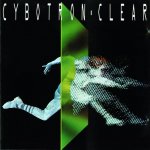yyaldrin
in je ogen waait de wind
did anyone ever read something by esther leslie? i think some of the ideas put forward in this thread (or in "the surface" thread) are also discussed in her book "liquid crystals: the science and art of a fluid form". gonna find myself a copy and report back.
https://www.militantesthetix.co.uk/liquidcrystal/liquidcrystalbook.htmlWhile it is responsible for today s abundance of flat screens on televisions, computers, and mobile devices most of us have only heard of it in the ubiquitous acronym, LCD, with little thought as to exactly what it is: liquid crystal. In this book, Esther Leslie enlightens us, offering an accessible and fascinating look at not a substance, not a technology but a wholly different phase of matter. As she explains, liquid crystal is a curious material phase that organizes a substance s molecules in a crystalline form yet allows them to move fluidly like water. Observed since the nineteenth century, this phase has been a deep curiosity to science and, in more recent times, the key to a new era of media technology. In between that time, as Leslie shows, it has figured in cultural forms from Romantic landscape painting to snow globes, from mountaineering to eco-disasters, and from touchscreen devices to DNA. Expertly written but accessible, Liquid Crystals recounts the unheralded but hugely significant emergence of this unique form of matter. "
‘There is every chance that you will be reading Liquid Crystals on a liquid crystal display screen, if not in the year of its release, then somewhere in the future. The ubiquity of LCDs makes them invisible, unthought. Leslie drags us back to the screen, to the discovery of this uncomfortably contradictory state of matter, and to the vast range of implications it has for the way we imagine the materiality and abstraction of our world, from financial liquidity to Superman’s icy Fortress of Solitude. She raises the tantalising prospect that liquid crystals are key not only to images but to perception and to our worldview: the governing metaphor through which we comprehend the rival claims of dialectics and flow. Erudite, lucid, enthralling, Esther Leslie's eclectically logical investigations transform our understanding of the historical generation of ideas and ways of thinking.’ -- Sean Cubitt, Professor of Film and Television, Goldsmiths, University of London

